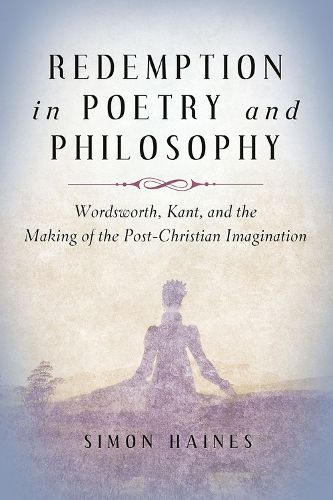Readings Newsletter
Become a Readings Member to make your shopping experience even easier.
Sign in or sign up for free!
You’re not far away from qualifying for FREE standard shipping within Australia
You’ve qualified for FREE standard shipping within Australia
The cart is loading…






A biblical understanding of redemption requires the sacrificial death of Jesus. In the post-Christian world envisioned by Jean-Jacques Rousseau and his Enlightenment contemporaries, the Christ-centric source of redemption disappears, though the human need for salvation remains. Redemption in Poetry and Philosophy explores how this need for redemption is realized in the post-Christian poetics of William Wordsworth and philosophical imagination of Immanuel Kant. Simon Haines critiques the secular modes of salvation articulated by each figure to illustrate the shortcomings of modern, post-Christian imagination. Redemption in Poetry and Philosophy highlights the ways in which prose allegedly serves as a redemptive agent for nonbelievers in the modern age, but also engenders dangerous notions of self-redemption in contemporary Christians.
$9.00 standard shipping within Australia
FREE standard shipping within Australia for orders over $100.00
Express & International shipping calculated at checkout
A biblical understanding of redemption requires the sacrificial death of Jesus. In the post-Christian world envisioned by Jean-Jacques Rousseau and his Enlightenment contemporaries, the Christ-centric source of redemption disappears, though the human need for salvation remains. Redemption in Poetry and Philosophy explores how this need for redemption is realized in the post-Christian poetics of William Wordsworth and philosophical imagination of Immanuel Kant. Simon Haines critiques the secular modes of salvation articulated by each figure to illustrate the shortcomings of modern, post-Christian imagination. Redemption in Poetry and Philosophy highlights the ways in which prose allegedly serves as a redemptive agent for nonbelievers in the modern age, but also engenders dangerous notions of self-redemption in contemporary Christians.